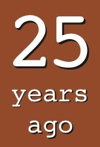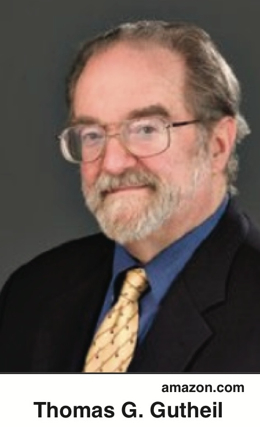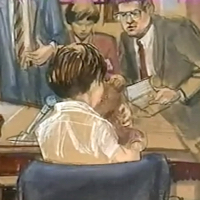Rascals case in brief
In the beginning, in 1989, more than 90 children at the Little Rascals Day Care Center in Edenton, North Carolina, accused a total of 20 adults with 429 instances of sexual abuse over a three-year period. It may have all begun with one parent’s complaint about punishment given her child.
Among the alleged perpetrators: the sheriff and mayor. But prosecutors would charge only Robin Byrum, Darlene Harris, Elizabeth “Betsy” Kelly, Robert “Bob” Kelly, Willard Scott Privott, Shelley Stone and Dawn Wilson – the Edenton 7.
Along with sodomy and beatings, allegations included a baby killed with a handgun, a child being hung upside down from a tree and being set on fire and countless other fantastic incidents involving spaceships, hot air balloons, pirate ships and trained sharks.
By the time prosecutors dropped the last charges in 1997, Little Rascals had become North Carolina’s longest and most costly criminal trial. Prosecutors kept defendants jailed in hopes at least one would turn against their supposed co-conspirators. Remarkably, none did. Another shameful record: Five defendants had to wait longer to face their accusers in court than anyone else in North Carolina history.
Between 1991 and 1997, Ofra Bikel produced three extraordinary episodes on the Little Rascals case for the PBS series “Frontline.” Although “Innocence Lost” did not deter prosecutors, it exposed their tactics and fostered nationwide skepticism and dismay.
With each passing year, the absurdity of the Little Rascals charges has become more obvious. But no admission of error has ever come from prosecutors, police, interviewers or parents. This site is devoted to the issues raised by this case.
On Facebook
Click for earlier Facebook posts archived on this site
Click to go to
Today’s random selection from the Little Rascals Day Care archives….
Click for earlier Facebook posts archived on this site
Click to go to
Today’s random selection from the Little Rascals Day Care archives….
‘What may be the largest child sexual abuse trial this country has ever seen’
July 22, 2016
“FARMVILLE, N.C. – Farmville’s only courtroom has never played host to a felony trial. This week, the town’s 4,000 residents will watch a parade of jurors, lawyers, psychologists, parents and children converge on that courtroom. There, they will unfold what may be the largest child sexual abuse trial this country has ever seen: the trial of Robert F. Kelly Jr. of Edenton.
 “The trial was moved to this one-blink community in Pitt County, 65 miles west of Edenton in Eastern North Carolina, because of pretrial publicity.
“The trial was moved to this one-blink community in Pitt County, 65 miles west of Edenton in Eastern North Carolina, because of pretrial publicity.
“But the spotlight will find Farmville, if not for the unprecedented number of sexual abuse indictments, then for the sordid nature of the charges. And if not for that, then for the impact the trial – expected to last three to four months – could have on future large-scale child-abuse prosecutions.
“Jury selection is scheduled to start today….”
– From “Witnesses, jurors, lawyers mass for sexual-abuse trial” by Knight-Ridder News Service in the Baltimore Sun (July 22, 1991)
In fact, the trial would last nine months, not three or four. Although prosecutors won initial convictions of both Kelly and Dawn Wilson, for whatever reasons – surely including the eye-opening effects of Ofra Bikel’s “Innocence Lost” trilogy – the nation was spared “future large-scale child-abuse prosecutions.”
![]()
What jurors learned from ‘Every Mother’s Worst Fear’
April 2, 2012
Among the contaminants reported in the deliberations of the first Little Rascals jury was a Redbook article used to profile Bob Kelly as a child molester. Its content never was detailed, so I looked it up (thanks yet again, Charlotte Mecklenburg Library).
Beneath the panic-inducing headline – “Why I’m Every Mother’s Worst Fear” – I was surprised to find virtually nothing relevant to day cares. Instead, the author offered insights such as:
“There are far more child molesters who operate like me than there are those who forcibly kidnap children. What the abductors do makes the headlines. What I do is more common and less noticeable. Most child molesters are established in our communities, known to others as just another good neighbor. We may even be married with kids of our own.”
An editor’s note drove home the point: “Finally, believe a child who reports a sexual overture or encounter, no matter how respectable or unlikely the accused person might seem.”
These descriptions, of course, fit the crazy-making template for ritual-abuse prosecutions:
If he seems like a child abuser, then he is.
If he doesn’t seem like a child abuser, then he is – “no matter how unlikely.”
In search of a ‘frank and unblinking appraisal’
 Feb. 20, 2014
Feb. 20, 2014
Following up on the curious case of Richard Noll v. Psychiatric Times, I wrote editor-in-chief James L. Knoll IV to ask about the removal of Dr. Noll’s “satanic ritual abuse” essay from the Psychiatric Times website.
Did the journal plan to address in some fashion the issues raised in Dr.
Noll’s piece? “Unfortunately, I am not at liberty to comment on the situation,” Dr. Knoll replied.
Next I turned to Psychiatric Times’ editorial board, described on the site as “(not) just figureheads with impressive résumés…. They give us their frank and unblinking appraisal of the contents of each and every issue….”
This is from a letter I sent to 22 PT board members:
“I am writing you in response to Dr. Allen Frances’s call for psychiatrists to ‘step forward and do the right thing’ about the profession’s failure to confront the ‘satanic ritual abuse’ claims of the 1980s and early ’90s.
“As you know, Psychiatric Times removed from its website Dr. Richard Noll’s history of the SRA era….
“Dr. Noll concluded by asking: ‘Are we ready now to reopen a discussion on this moral panic? Will both clinicians and historians of psychiatry be willing to be on record? Shall we continue to silence memory, or allow it to speak?’
“How do you, as a member of the Psychiatric Times editorial board, answer these questions?
“Would you now be willing to join with Dr. Frances in formally setting the record straight about SRA and in making amends to the scores of wrongfully prosecuted victims of the moral panic?”
So far I have not been overwhelmed with responses to these questions. In fact, I have received only a single “frank and unblinking appraisal” – from Thomas G. Gutheil, professor of psychiatry, Beth Israel Deaconess Medical Center, Harvard
Medical School.
“I do agree (with Dr. Frances),” he writes. “The 1992 FBI report compiled by Kenneth Lanning should have put an end to this, when he investigated many claimed cases from law enforcement viewpoint and in multiple cases found not a shred of physical evidence, DNA, cells or bloodstains from butchered babies or sacrificed virgins.
“The problem is that social viruses like this are hard to assess and halt, like their biologic counterparts. I agree that individuals, especially in the legal system, should own up to their serious errors and miscarriages of justice, since improved science has blown up many claims, yet some prosecutors (e.g., Martha Coakley in Mass.) have not reversed themselves nor freed the imprisoned.
“However, I am not sure the entire mental health professions should share the blame.”
To be sure, distribution of responsibility among the professions is uneven – the Little Rascals prosecutors called on no psychiatrists at all, only psychologists, off-brand psychotherapists, etc.
How ‘Innocence Lost’ changed one viewer’s life

pbs.org
Courtroom sketch from the “Innocence Lost” series.
March 16, 2016
“Thank you for providing a site to keep this tragedy alive…. I was a daycare/preschool owner/administrator for 20 years ending in 1995. The primary reason I retired early was watching (“Innocence Lost”) on PBS and realizing anyone at any time could accuse me of abuse lies and my life and career would have been ruined….”
– From a letter from a Wisconsin reader
Such fears were not unfounded, of course – or uncommon.
![]()











0 CommentsComment on Facebook